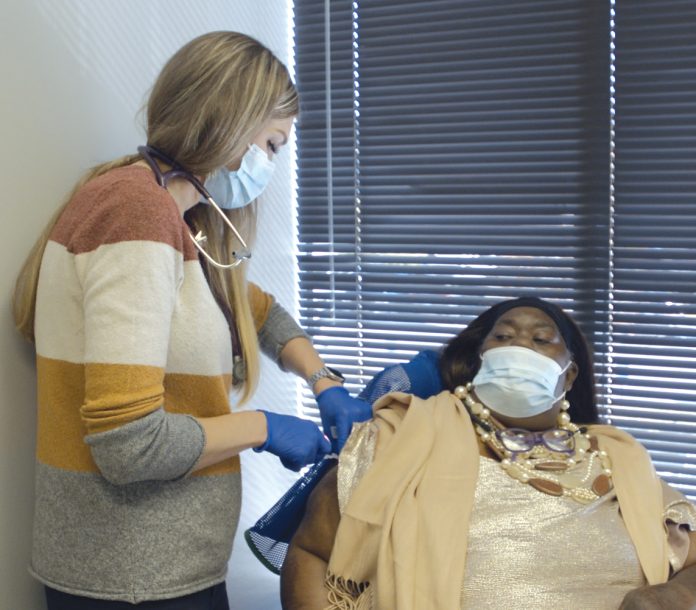
Ironic? Or timely? Either way, a spike in cases of flu here and across the country coincides with the start of National Influenza Vaccination Week (December 4-10).
Locally, health clinics are busy caring for a growing number of patients with flu-like symptoms. It’s a spike that is being seen across the state and country right now.
The CDC reports flu A is the dominant strain, making up 78% of current cases. There is good news, though. That’s because this year’s vaccine appears to be a good match for that strain, which is why health care providers are urging everyone, but especially seniors to get their annual flu vaccine as soon as possible. (STORY CONTINUES BELOW)
“This the first year where, at least at our clinic, we are starting to see a lot more flu again and some of these other respiratory illnesses that we haven’t in a while,” said Nurse Practitioner Ashley Henson, who sees patients are Valir PACE in Oklahoma City.
Henson and other health care providers suspect that this year’s spike coincides with what may be a false sense of security by some. Many are no longer masking or social distancing, which Henson said allows viruses, like flu and pneumonia, to spread.
The Oklahoma State Department of Health already reports more than 450 people have been hospitalized for complications from influenza. Four people have died.
The virus can be especially dangerous for seniors if they aren’t vaccinated. Vanessa Boniface, 67, a Valir PACE participant, knows well the importance of getting her annual flu shot.
“At my age, I’m vulnerable to get sicker faster,” Boniface said. “Nobody’s going to tell you if they’re sick or not, so if you have a vaccine to protect your own self then you shouldn’t have to worry about if people are sick.”
PACE stands for program of all-inclusive care for seniors. That means for seniors like Vanessa, the vaccinations are included, right along with medications, transportation, therapy, meals and more. Many PACE participants have complicated health issues that put them at higher risk for complications from flu, pneumonia, and other winter-time illnesses. Henson and fellow health team members at PACE strive to keep their participants healthy by encouraging vaccination.
According to Henson, vaccination for flu is critical, but COVID-19 vaccines and boosters, and pneumonia vaccines are just as important. Fortunately, there is new help on the fighting pneumonia front. A relatively new pneumonia vaccine means patients can now get full protection with just one shot, instead of two.
“You get that one shot and you’re done for life, as current guidelines stand,” Henson remarked.
While Henson admits no vaccine is 100 percent effective, she says vaccination is still a senior’s best defense.
“We do know that there’s a much lower hospitalization admission rate for seniors, and lower rates of admission to hospital Intensive Care Units as well,” Henson said.
Helping keep seniors out of the hospital and living independently is a top goal for Henson and the team at Valir PACE. She added that they do still occasionally see patients who are reluctant to be vaccinated and work to address their concerns. If you have concerns about the vaccines, Henson suggests talking to your health care provider to get your questions answered and hopefully clear up any confusion or misinformation you may have about vaccination.












